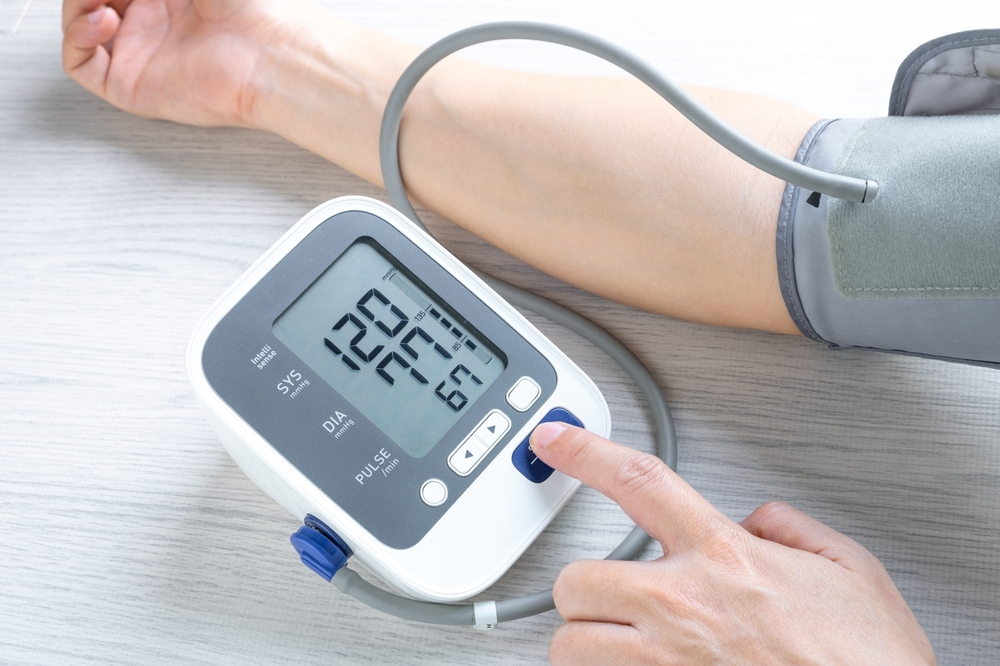- Your Guide to Understanding and Managing High Blood Pressure
- Understanding Blood Pressure Readings
- Is 140/90 mmHg Blood Pressure Normal? Understanding Hypertension Risks
- The Risks of Hypertension
- Why World Hypertension Day Matters?
- Understanding Hypertension: What Causes High Blood Pressure?
- Managing Hypertension
- The Role of Healthcare Providers
- Prevention Tips for Everyone
- Conclusion
Your Guide to Understanding and Managing High Blood Pressure
Blood pressure is a crucial health indicator that everyone should monitor regularly. On World Hypertension Day, it’s essential to raise awareness about what constitutes normal blood pressure levels and the potential risks associated with hypertension. One commonly asked question is whether a blood pressure reading of 140/90 mmHg is normal.
Let’s explore and discover the truth.

Understanding Blood Pressure Readings
Blood pressure is measured in millimeters of mercury (mmHg) and recorded with two numbers. The first number, called systolic pressure, measures the force of blood against your artery walls when your heart beats. The second number, diastolic pressure, measures the pressure in your arteries when your heart rests between beats.
Is 140/90 mmHg Blood Pressure Normal? Understanding Hypertension Risks
According to the American Heart Association (AHA) and other leading health organizations, a normal blood pressure reading is less than 120/80 mmHg. Readings between 120/80 mmHg and 129/84 mmHg are considered elevated, while readings from 130/85 mmHg to 139/89 mmHg indicate Stage 1 hypertension. Therefore, a reading of 140/90 mmHg falls into the category of Stage 2 hypertension.
The Risks of Hypertension
Hypertension, or high blood pressure, is often called the “silent killer” because it typically has no symptoms until significant damage has occurred. Prolonged hypertension can lead to severe health complications, including:
Heart Disease: High blood pressure can cause the arteries to harden, increasing the risk of heart attack, stroke, and other cardiovascular diseases.
Kidney Damage: Hypertension can damage the blood vessels in the kidneys, leading to kidney failure or disease.
Vision Loss: Elevated blood pressure can strain the blood vessels in the eyes, potentially causing vision problems or blindness.
Cognitive Decline: Hypertension has been linked to an increased risk of dementia and other cognitive impairments.
Why World Hypertension Day Matters?
World Hypertension Day, observed on May 17th, aims to raise awareness about hypertension and promote healthy blood pressure practices globally. It emphasizes the importance of regular blood pressure checks and encourages individuals to take proactive steps in managing their health.
Understanding Hypertension: What Causes High Blood Pressure?
Several factors can lead to high blood pressure, including:
Genetics: Family history plays a significant role in determining your risk for hypertension.
Age: Blood pressure tends to increase with age.
Lifestyle: Unhealthy diets, lack of physical activity, excessive alcohol consumption, and smoking can all elevate blood pressure.
Stress: Chronic stress may contribute to increased blood pressure.
Medical Conditions: Conditions such as diabetes, obesity, and high cholesterol are closely linked with hypertension.
Managing Hypertension
If your blood pressure is 140/90 mmHg or higher, it’s crucial to take steps to manage it effectively. Here are some practical strategies:
1. Adopt a Healthy Diet
Eating a diet rich in fruits, vegetables, whole grains, and low-fat dairy products can help lower blood pressure. The DASH (Dietary Approaches to Stop Hypertension) diet is especially effective for this purpose. Reducing salt intake is also vital, as sodium can raise blood pressure.
2. Exercise Regularly
Engaging in regular physical activity, such as brisk walking, cycling, or swimming, can significantly reduce blood pressure. Aim for at least 150 minutes of moderate-intensity exercise per week.
3. Maintain a Healthy Weight
Being overweight or obese raises the risk of hypertension. Even losing a small amount of weight can help lower your blood pressure.
4. Limit Alcohol and Quit Smoking
Excessive alcohol consumption can raise blood pressure, so it’s important to drink in moderation. Smoking cessation is also critical, as tobacco use significantly increases the risk of heart disease and stroke.
5. Manage Stress
Techniques such as meditation, deep breathing exercises, yoga, and mindfulness can help reduce stress levels and, consequently, lower blood pressure.
6. Monitor Your Blood Pressure
Regularly checking your blood pressure at home or at a healthcare provider’s office can help you stay on top of your health. Keeping a log of your readings can assist your doctor in managing your hypertension effectively.
7. Medications
Sometimes, lifestyle changes by themselves may not be sufficient to control high blood pressure. Your doctor may prescribe medication to help manage your condition. It’s essential to take these medications as directed and to discuss any side effects with your healthcare provider.
The Role of Healthcare Providers
Regular visits to your healthcare provider are crucial for monitoring and managing hypertension. They can offer personalized guidance and adapt your treatment plan as required. Additionally, they can screen for other conditions that may contribute to high blood pressure, such as diabetes or high cholesterol.
Prevention Tips for Everyone
Preventing hypertension is always better than treating it. Here are some general tips to keep your blood pressure in a healthy range:
Stay active by integrating physical activity into your daily schedule.
Eat a Balanced Diet: Focus on nutrient-rich foods and limit processed foods high in salt and sugar.
Limit Caffeine: Excessive caffeine can temporarily raise blood pressure.
Get Enough Sleep: Poor sleep quality and duration can negatively impact your blood pressure.
Stay hydrated by consuming ample water and restricting intake of sugary beverages.
Conclusion
A blood pressure reading of 140/90 mmHg is not considered normal and falls into the category of Stage 2 hypertension. This level of blood pressure poses significant health risks and requires attention and management. On World Hypertension Day, let’s commit to regular blood pressure monitoring, adopting healthier lifestyles, and seeking medical advice when necessary. By taking these steps, we can reduce the prevalence of hypertension and improve overall public health.
Remember, knowledge is power. Understanding the risks associated with high blood pressure and taking proactive measures can save lives. Spread the word this World Hypertension Day and help others on their journey to better heart health.


